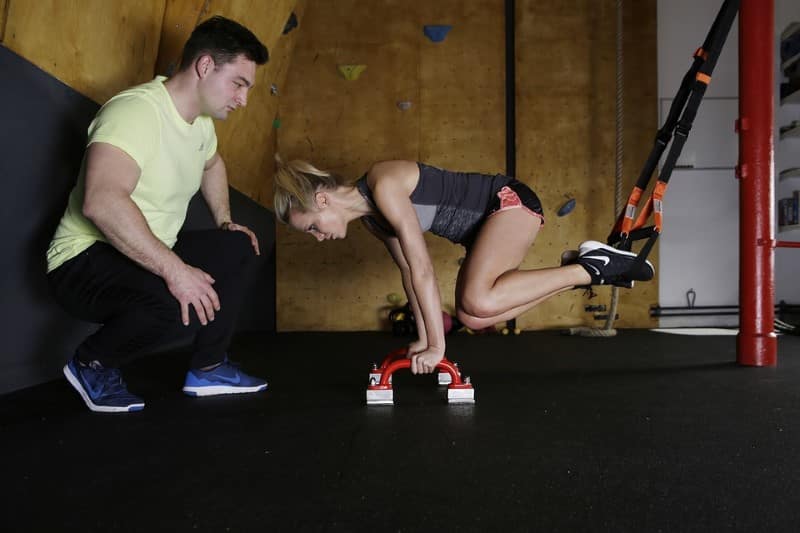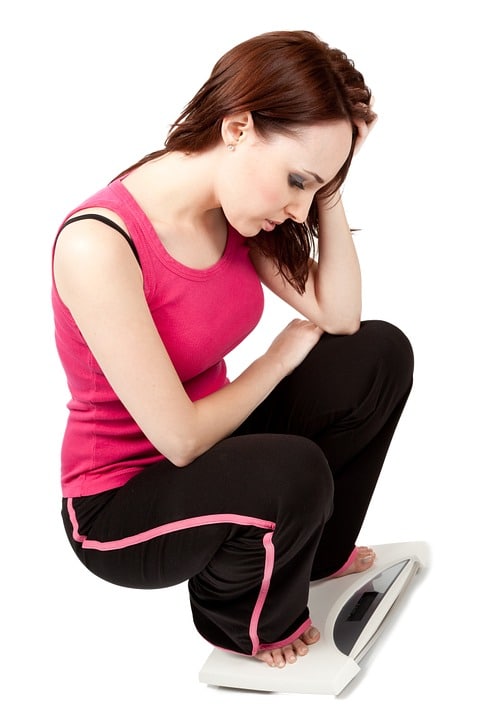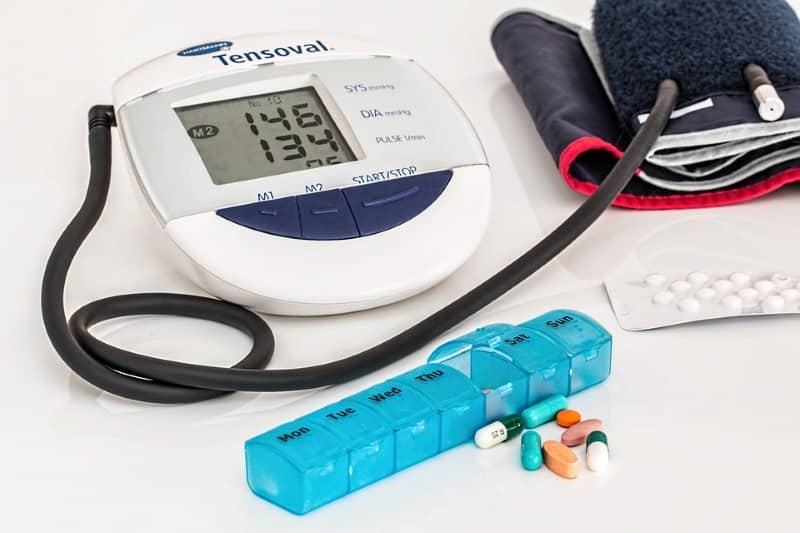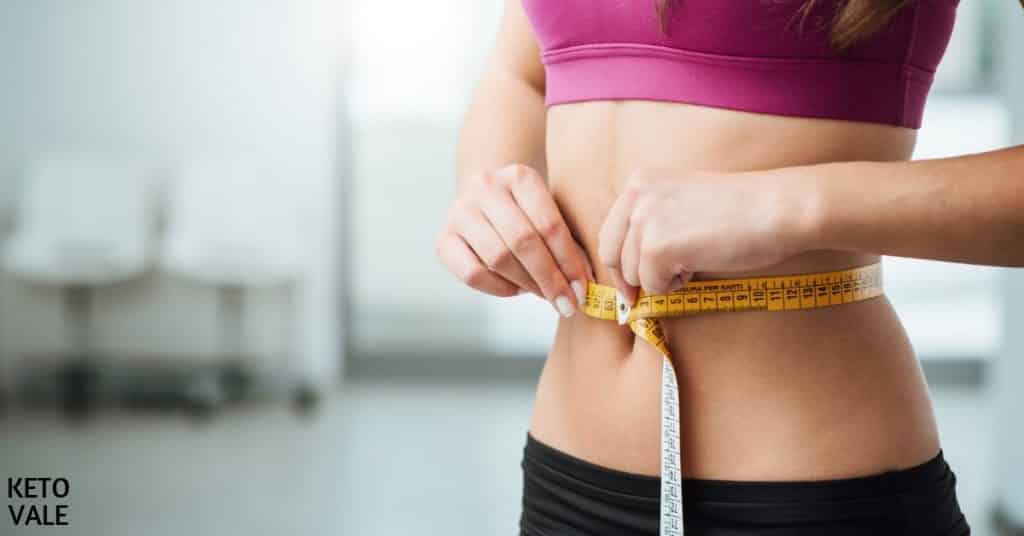You started the keto diet a while ago and your clothes already feel better, but you haven’t noticed much of a change in your scale weight. Does this sound like you? If so, you’re not alone, and there’s no reason to worry even if your current goal is to lose weight.
Actually, you’re likely in a better position than someone who has seen a fast drop of scale weight but no noticeable changes in their body measurements.
There might be a few things going on, but the number on the scale shouldn’t upset you if you’re already seeing other changes in your body.
Let us explain why.
Weight Loss Progress Is Not Linear And The Scale Is Not The Best Judge!
The scale should be just one of the many tools in your arsenal for tracking your progress, and you shouldn’t concentrate too much on it.
Weight changes throughout the day. It may vary based on what you have been drinking and eating, on bathroom breaks, on how dehydrated you are, etc…
If you weigh yourself in the morning and then around noon again, you’ll notice that the scale shows different things.
You may notice the same pattern for different days of the week (based on your behavioral patterns in regards to food, sleep, hydration, alcohol, etc.), or, for women, the different weeks of your monthly cycle.
While weighing yourself can be an indication of how your body is changing, it’s important to look at dieting as a more general transformation, and to not measure your success only in pounds.
We recommend having at least 2 or 3 different ways to measure your progress, such as:
- Taking measurements
- Checking how your clothes fit. Do your clothes fit better? Are you not losing weight but clothes are looser?
- Taking progress photos – as much as you might not feel like taking a “before” photo, later you’ll regret not having one
- Being mindful of other positive changes, such as clearer skin, better sleep, less inflammation, lower blood pressure, more stable blood sugar, and so on
- If you’re active, try setting fitness-related goals. For example, related to a distance, speed, or weight you can lift, and so on.
The scale isn’t an accurate reflection of your health and it cannot show you all the other positive changes that your body is going through.
Be mindful of each non-scale victory and celebrate it! (Not with cake, or with food, though – find other ways to reward yourself that are more positive and won’t hinder your progress).
Related: Keto Plateau: Why Weight Loss is NOT a Linear Process
Why Are You Getting Thinner But Not Losing Weight?
Do you lose inches before pounds? Here are the common reasons why you are losing size and your clothes are fitting better, but not pounds, with or without exercise.
#1. Your Body Composition Is Changing And You’re Building Muscle
If you want to look fit, sexy and in good shape, or what is often referred to as “toned,” your muscles are your best friend, and you certainly don’t want to start losing them – on the opposite, it’s a good idea to build some more.
Although it is somewhat harder, that’s possible to do even when you’re eating in a deficit, especially if you’re new to exercise.
In order to build muscle, it’s a good idea to incorporate some sort of resistance training into your workout routine and not rely solely on cardio. Lifting weights or bodyweight exercises are an excellent starting point.
Moreover, if you’re consuming enough protein, the keto diet is actually muscle sparing (1).

If you have started working out and dieting at the same time, the scale might not reflect the changes that your body is going through.
If you start noticing that clothes are looser and that you’re losing inches, but the scale isn’t moving, that’s actually excellent news – it means that your body composition is slowly changing and that you’re both losing fat and building muscle at the same time.
Moreover, when you work out, your muscles tend to feel sore and retain water, which can cause your weight not to change that much.
Extreme diets often rely on muscle loss and dehydration in order to help you achieve quick results that are visible on the scale – and this is a very poor and unsustainable way to achieve weight loss.
What you want instead is to preserve the muscle that you have and lose the body fat – and this is a slow process.
Related: The Comprehensive Guide to Using Ketosis for Weight Loss
#2. Taking Creatine
Have you recently started taking creatine to boost your workouts? It can make your body retain water – anywhere between 1 to 3 pounds is normal.
So if you notice the scale going up or stubbornly not bulging once you start taking creatine, don’t fret – all of this is normal, and is related to how your muscles store energy.
#3. Increased Bone Density
Lifting weights is an awesome way to transform your body. One of the many amazing benefits of resistance training is that it improves your bone density, making your skeletal system stronger and less prone to trauma.
Although the effect in terms of weight is minimal – we are looking at 0.5 to 1 pound usually, gained over the long term – it can add up, together with an increased muscle mass.
#4. Hormones

This one is for the ladies – your reproductive hormones play a major role in how much water you are retaining, and they are responsible for a significant portion of your weight fluctuations during your monthly cycle.
That’s why we recommend weighing yourself at the same week of your cycle every month, rather than weekly. Comparing your weight from the first week of your cycle to your weight right before your period will give you a very inaccurate picture of where you stand in terms of results.
Even if the scale shows that you gain weight, it might just be temporary water weight.
Compare instead how much you weigh on the first week of your cycle over a longer period of time.
For those of you who are stepping on the scale daily, keep in mind that fluctuations, especially around the week of your menstrual cycle (before, during and after), are completely normal.
#5. Inflammation, Food Intolerances and Allergies
Tracking your food will give you a good idea about which foods you might not tolerate so well, and which foods might bloat you. Bloating might make you retain water, and leave you feeling tired, heavy, and overall less than ideal.
Keep in mind that intolerances might be very mild and difficult to notice, but they could still play a role in how much water you’re retaining, and how your weight is fluctuating.
For example, a lot of people who don’t digest dairy very well will still feel okay after a small amount of it, or if they try a different type of dairy (such as goat or sheep cheese or yogurt) might be ok, while anything made from cow milk might have an adverse effect.
Same goes for nuts – you might not have a full-blown allergy (you’re likely more than aware of it, if you have one) but a mild sensitivity.
If on some days you’re feeling more bloated than others, check your food diary and try to identify the culprit.
You might then wish to exclude it for a week or two and then to reintroduce it slowly to see how your body reacts to it.
Related: The Complete Keto Diet Food List: What to Eat and Avoid
#6. Water Retention Due To Medication

If you have recently started taking contraceptives, such as the pill, it might make you retain water while your body is balancing your hormones.
This is typically not a real weight gain (as in, actual fat) but instead, it’s water weight – and that’s another possible reason why the scale might not be moving.
Additionally, non-steroidal anti-inflammatory drugs, such as paracetamol, aspirin and ibuprofen, among others, might make you retain water, too. The same goes for beta-blockers.
So if you’re taking these (or need to take them for a certain amount of time), concentrate on alternative ways to measure your progress.
#7. Thyroid Disease
Thyroid disease, and especially hypothyroidism, can make you retain more water and leave you feeling swollen.
If you notice other possible symptoms of thyroid disease, such as fatigue, weakness, increased sensitivity to lower temperatures, hair loss, depression and excessively dry skin, you might want to check that with your doctor and have them test you for thyroid disease.
If you’re not experiencing any other symptoms and the only thing that is bothering you is the scale not moving, but you’re seeing other positive changes in your body, it’s not very likely that you have a cause for concern.
Nevertheless, if you’re worried about it, it’s a good idea to check it with your healthcare provider.
Can Physical and Psychological Stress Affect Your Weight Loss Rate?
Stress plays a huge role in weight loss and fat loss, and your body is more prone to retaining water if it’s under stress, be it psychological (such as work-related, money issues, etc…) or physical (such as dieting, insufficient sleep, and heavy workouts).
Sometimes this could translate into a stubborn stall where your scale weight isn’t moving in the right direction for many days and even weeks at an end. This can be combined with other physical transformations, such as your clothes fitting better or seeing more muscle definition, but water retention could even sometimes make you feel bloated and bigger.
In regards to physical stress, keep in mind that dieting itself and eating in a deficit is stressful for your body, and the bigger your deficit, the more stressful it is. This is why sometimes just by switching to maintenance calories for a few days, you might quickly drop 1-2 pounds (or more).
This is just your body finally letting go of the water it has been retaining and is the direct result of lowering your stress levels by eating more. For that reason, it’s beneficial to sometimes make diet breaks of 1-2 days every 1-2 weeks, or, alternatively, of a week every 6 weeks. A diet break doesn’t mean eating everything and anything, though! You should simply switch to maintenance calories while still staying keto.
You may want to give keto cycling a try. It refers to adding two days per week of higher carb intakes, including up to 50 grams per day instead of 20.
This break can help you reduce stress by incorporating higher carb foods in your diet. You may be able to let go of water weight, reduce stress, and fill in nutritional gaps.
Overall, you will be spending the majority of your days in ketosis per month, and this is why you should not expect to see weight gain during this time.
Insufficient sleep can be another major factor for losing weight at a rate that is slower than expected, or even sometimes not at all. Not getting enough rest raises your cortisol levels, which, in turn, makes your body retain more water.
Additionally, if you’re physically active and working out a lot, you need to make sure that you’re getting adequate recovery time between sessions. This includes getting enough sleep. Strive for at least 7-8 hours of sleep daily for optimal results in terms of both weight loss and recovery.
Related: How To Keep Booty and Breasts While Losing Weight
Our conclusion
While it’s important to have goals and to work towards achieving them, it’s not always necessary to have a super precise goal weight, especially if you have also started working out together with dieting.
Being physically active, and especially working towards building more muscle, will transform your body in a way that cannot be precisely reflected by a number on the scale.
That’s especially true if you are already relatively fit and just want to get rid of a few more pounds of fat. Someone who is starting their journey very overweight will notice a more rapid change in terms of weight than someone who is relatively fit.
A lot of people, at the beginning of their weight-loss journey, decide that they want to achieve a certain weight they were in the past, typically in their early twenties.
Nevertheless, if you’re building muscle, you might end up being heavier than this specific weight, but looking and feeling better – fitter, stronger, and healthier. And there’s absolutely nothing wrong with that!
That’s why it’s important to not fixate yourself on some number that you see as your “ideal weight,” but rather work towards a healthy and sustainable range.
Related: How Much, How Fast and What to Expect When It Comes to Losing Weight on Keto
Measure your progress in a few different ways – take photos & body measurements, observe your problem areas (such as belly, hips, love handles, etc.) and see how they change, check how your clothes fit, and so on.
Celebrate every step towards success – it all counts! Losing a couple of inches, stabilizing your blood sugar, fitting in a smaller size, improving the way your thighs look, lowering your blood pressure – these are all important milestones of your progress, and if you’re only looking at the scale, you might not even notice them.
The scale can be an important tool for weight management, once you get to where you want to be in terms of body composition – use it to make sure that the weight is not creeping back up over time. But again, don’t let it define how you feel about yourself – it’s one of the many tools that you have, and not the most accurate one.
How do you personally measure your progress? Are you sometimes feeling frustrated with what the scale is showing? Have you noticed what foods bloat you and make you retain more water than usual? How have your workouts affected your weight?
Share your experience with us and with our readers!
Up Next: How to Troubleshoot a Weight Loss Stall on Keto
Enjoy this post? Share it for later reference!








